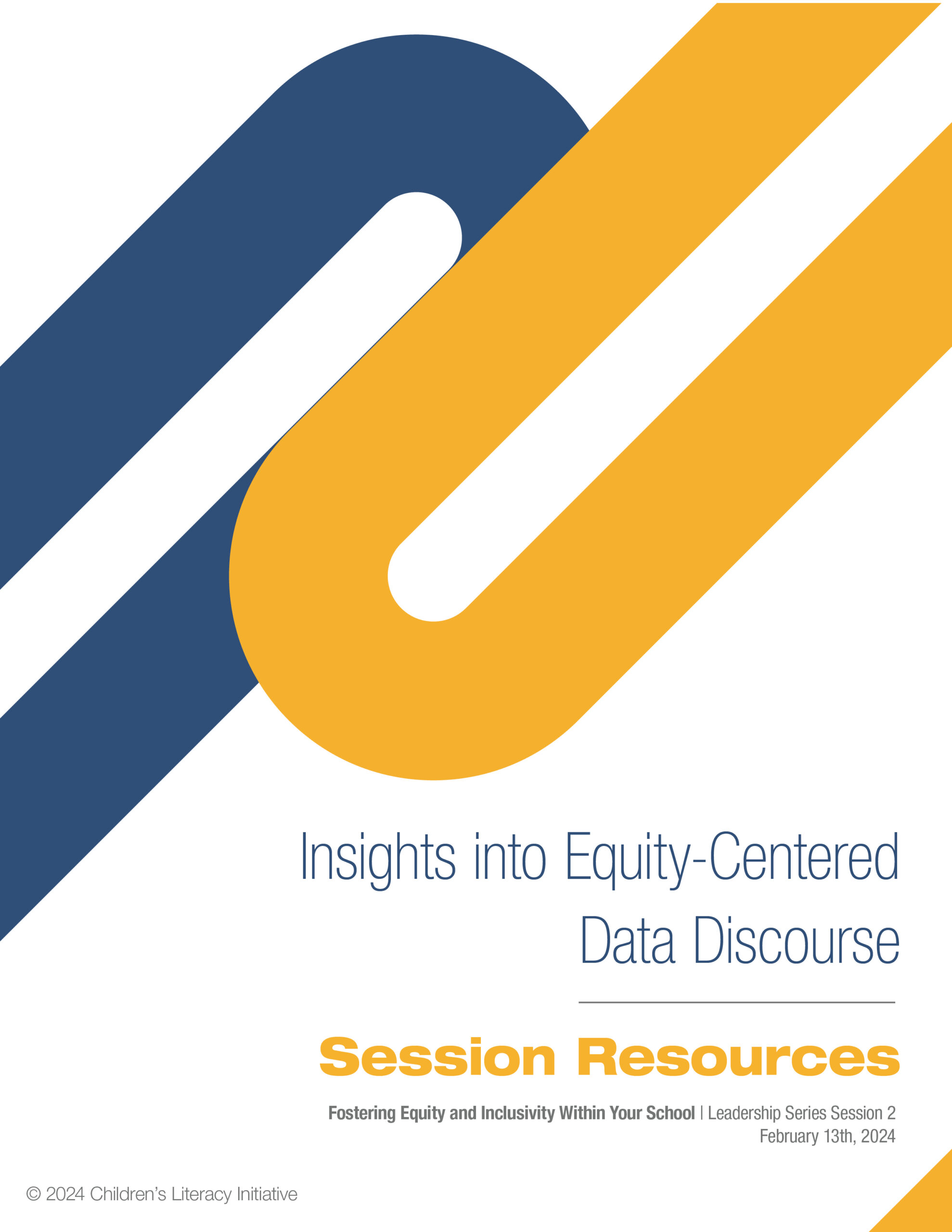Insights into Equity-Centered Data Discourse
Fostering Equity and Inclusion Within Your School
In Case You Missed It
Our second presentation in the school leaders webinar series, Fostering Equity and Inclusion in Your Schools, covered Insights into Equity-Centered Data Discourse. In this session, Mary List, Senior Executive Director (Midwest Region) and Amber Haynes, Regional Manager (Chicago and Omaha) connected with school leaders to build out they can impact (and play a critical role in) in creating an equity centered school environment.
CLI workshops include community builders to help us think about how we act and interact in groups. It helps us understand our own ways of working with others, and builds empathy for other people’s perspectives and work styles, and this session focused on a discussion around Ted Rose's The End of Average, which you can view here.
Participants left this session equipped with practical strategies for using data to make equitable decisions, lead staff development with an equity focus, and collaborate effectively with their teams. The skills acquired empower principals to drive meaningful change in their schools, ensuring that all decisions are grounded in data and committed to equity.
There are two main data pools that inform CLI's approach to equity in the classroom.
- Satellite Data is large, high-level data. It's quantitative in nature, so think of standardized test scores, attendance patterns, disaggregated data by demographics and disciplinary data. While satellite data is important, keep in mind that this information on its own can reinforce implicit bias.
- Street Data is fine-grain information. These data points help us respond to child, teacher, and caregiver experiences. Having street data allows us to unpack the experiences of the aforementioned groups.
When you've successfully collected this data, what do you do next? The answer is two-fold.
With your teachers, review the literacy data for your school community. Take inventory of all the literacy assessments with grade-level teams. Add street data to your suite of assessments so that your decisions and practices hold individual children's needs at the center.
With a team of school staff, follow the strategic planning process to identify one or two "big rocks" and develop an action plan.
Interested in what CLI can provide for your school? Connect with us.
Learn practical strategies for using data to make equitable decisions, lead staff development with an equity focus, and collaborate effectively with their teams. Download the Session 2 resource guide now to cultivate a culture of lifelong learning and collaboration in your schools.
Dive into the recaps and videos from the "Fostering Equity and Inclusivity Within Your School" virtual webinar series. Explore session resources and strategies aimed at shaping a school culture where every student feels valued and celebrated.

